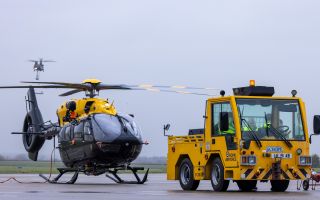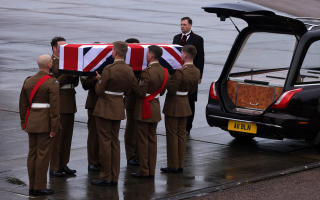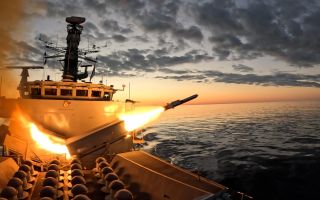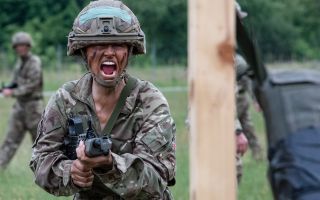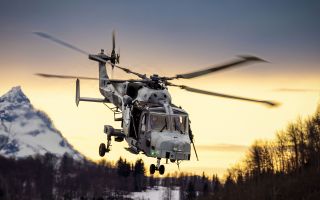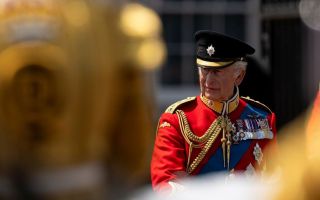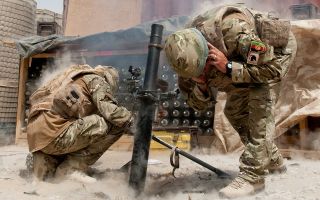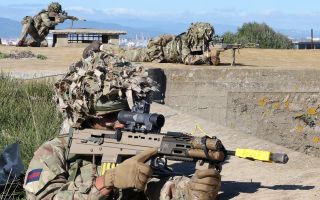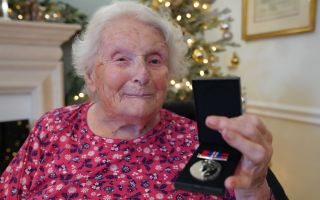Why the tiny country of Kuwait remains a crucial defence ally after 125 years
The UK and Kuwait have celebrated 125 years of close diplomatic relations and both their militaries have played a part in helping that partnership last.
The small Gulf state, which is less than 18,000 sq km but with an immense oil wealth, has been an important ally to the UK in the Middle East, providing a strategic foothold in the region.
The UK has also helped to protect Kuwait, as when Saddam Hussein invaded Kuwait in 1990, British personnel deployed as part of Operation Desert Storm to repel his forces.
Brigadier Gavin Thompson of the British Military Mission Kuwait told BFSS Forces News: "Kuwait lives in a region of geopolitical instability with big neighbours.
"It's a small country and it needs to feel the proximity of its allies for its security and, in 1961 and again in 1991, the UK played a leading part in the forces that came to the support of Kuwait when it was under threat from one of its larger neighbours.
"That really matters to the Kuwaitis.
"They look upon us as their closest and oldest friend outside the region and that's a genuine heartfelt sentiment that comes across."
Surrounded by bigger and traditionally more powerful neighbours, with Saudi Arabia to the south, Iraq to the north and Iran across the Arabian Gulf, the UK is a key ally to Kuwait.
UK Ambassador to Kuwait Belinda Lewis said: "It gives us a good opportunity to be able to reach into other areas, other kinds of airspace, to be able to conduct our operations.
"But there are lots of other reasons why Kuwait is strategically of great use to the UK.
"Part of it is our shared doctrine. We have very similar approaches to things from a military perspective."
One example of this relationship is the Mubarak Al-Abdullah Joint Command and Staff College.
It is where British personnel provide training to officers from around the world and enhance their leadership skills.
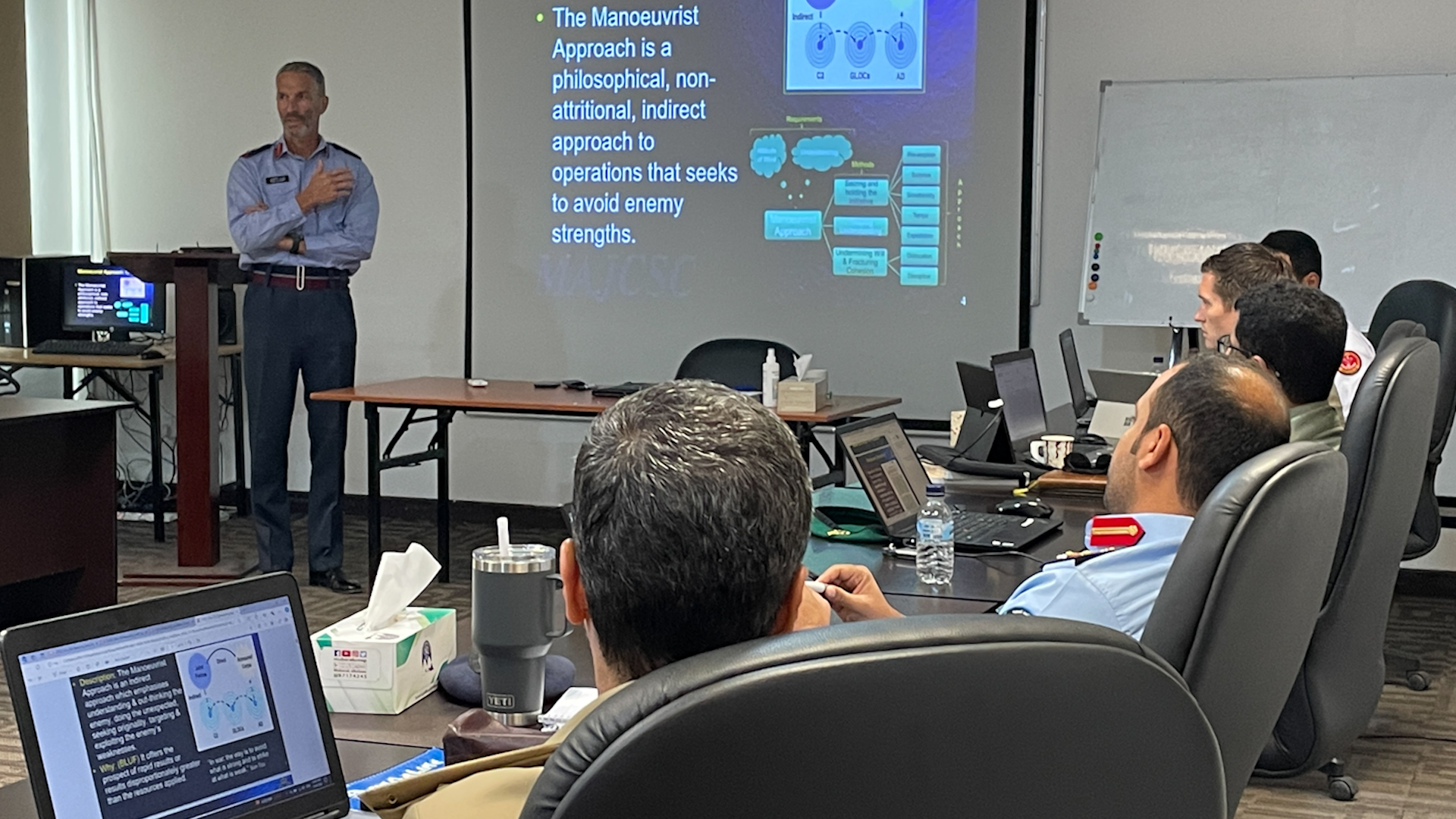
Colonel Bader Al Dosri, who instructs at the college, said: "The thing I picked up was the operation tactics from the UK doctrine.
"Here we are teaching the Nato doctrine with the UK doctrine because of the importance of the UK definitely the Nato doctrine and for the multinational work.
"We have some officers in Kuwait who have qualified from the UK staff college – so they are teaching now."
Kuwaiti instructors work alongside UK personnel to deliver the teaching.
Lieutenant Colonel Tim Badham said: "It improves the quality of the instruction, and it makes it culturally sensitive and appropriate for the region.
"But also, it allows the UK and Kuwaiti staff to learn from each other and, certainly as UK DS we learn an enormous amount from our Kuwaiti colleagues about the region and culture.
"About how they view the world, and those differences are important to making us more operationally effective in the long run."
This staff college is Kuwait's answer to the Joint Services and Command College in Shrivenham.
It is the only college in the region accredited by the UK Defence Academy delivering a course equivalent to its own Advanced Command and Staff Course.
Commander George Yeates of the Royal Navy is currently studying at the college. He said: "By sharing our knowledge and expertise we're collectively developing.
"We're developing a collective understanding, and we are sharing best practices.
"So, getting a better understanding of how the students think on this course and how they work and also vice versa they're getting that same mutual benefit from me."
Since the turn of the last century, the UK has been a key player in helping establish Kuwait's place in the Gulf and ensuring its survival.
This cooperation has also helped it protect British interests in the region for decades, ensuring the two nations both benefit from their longstanding partnership.

